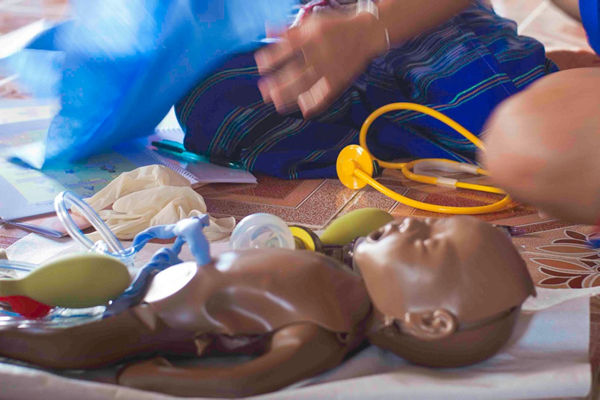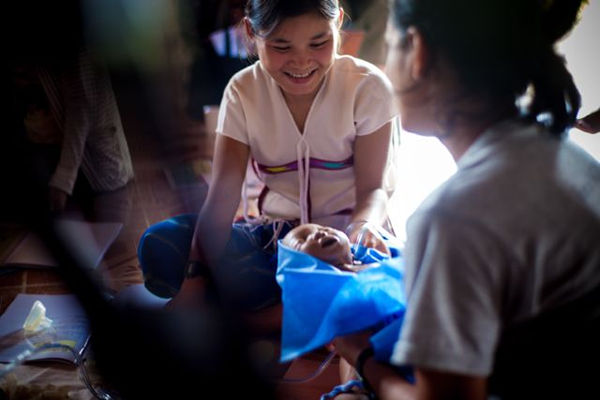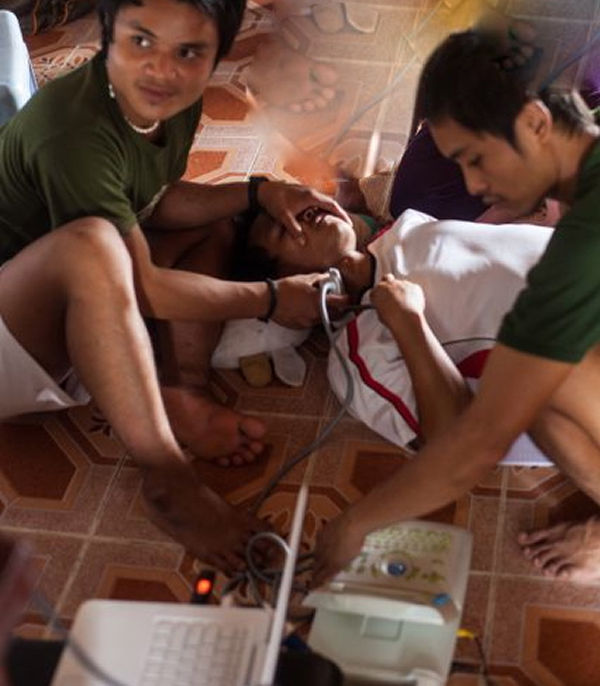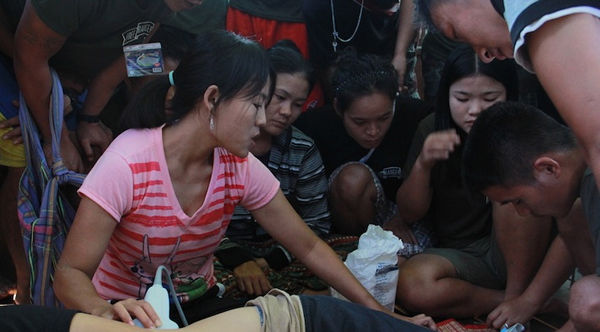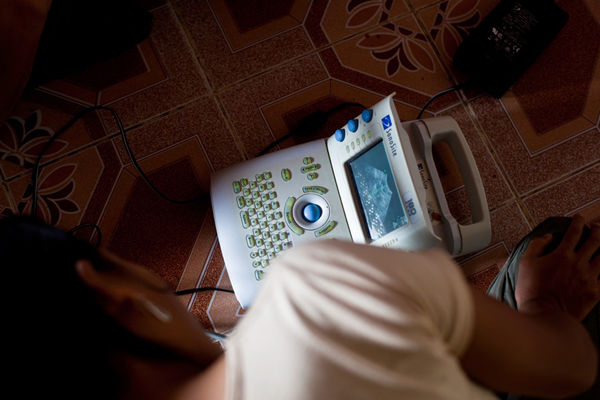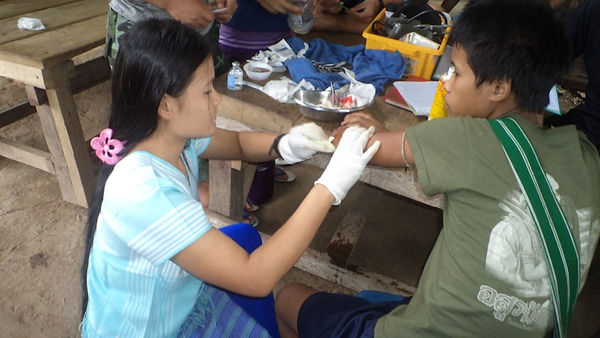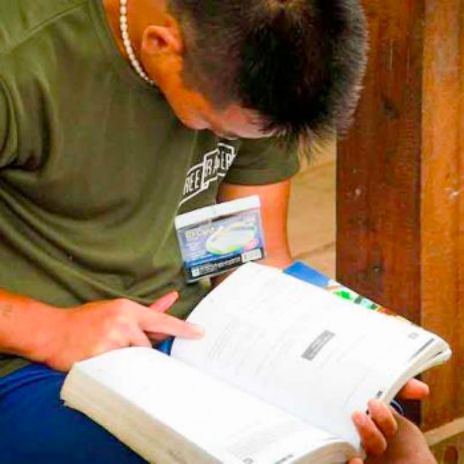JSMK staff complete a two-week course on newborn resuscitation, X-ray and ultrasound imaging.
From FBR’s Jungle School of Medicine-Kawthoolei, Karen StateOctober 2012
On 17-29 September 2012, the Free Burma Rangers’ Jungle School of Medicine Kawthoolei (JSMK) staff, consultants and some students participated in a hands-on medical training to learn about newborn resuscitation protocols as well as basic X-ray and ultrasound imaging procedures. They were joined by three nurses from Partners Relief and Development (PRAD) and three visiting health professionals.
JSMK’s new digital X-ray system was set up and an experienced radiographer, Michael, taught how to safely and properly obtain images for many commonly requested X-rays: posterior/anterior chest, lateral chest, skull, cervical, abdominal flat plate and long bones. He also donated a new manual describing how to set up these shots. Students practiced using the system by carefully taking a few X-ray images of each other. The capacity to provide digital X-ray images combined with JSMK’s ability to send out these images over the internet to medical consultants around the world will provide a unique and much-needed service to the entire region.

Infant mortality is another huge problem inside Burma. Simple but effective neonatal resuscitation protocols were taught over the course of two days. Teachers brought mannequin babies that could simulate breathing, cord pulsation and crying so that the students could practice protocols with simulated inputs at critical decision points.
Finally, four portable ultrasound machines were used to teach JSMK staff basic ultrasound sonography. Students learned how to use ultrasound imaging to evaluate abdominal trauma, look for kidney stones, diagnose deep abscesses, assist in placing IV lines and nerve blocks and, most importantly, to evaluate obstetrical cases. JSMK has an ultrasound machine on site that staff and students can use to apply their new skills.
JSMK is in its second year of operation. The one-year program uses supervised clinical interactions and a problem-based curriculum to teach medical fundamentals to FBR medics. In the morning students take care of patients both in a clinic setting and in a hospital setting. Competent supervision is critically important as students begin to assume responsibility for patient care. To do this, students are divided into three groups. A junior staff member is assigned to each group and is in turn monitored by a senior staff member. FBR doctors and nurses are on site as much as possible providing consultation, guidance and encouragement. In the afternoon, students attend more formal lectures based on a problem-based curriculum. This means that lectures in anatomy, physiology, disease processes, diagnostic decisions and treatments are all organized according to common problems that patients present with in the field.
This year, JSMK has enrolled 18 medics. From January to September: JSMK clinic treated 757 patients (109 younger than 5 years old), JSMK hospital treated 269 patients (80 younger than 5 years old)
One patient’s report was: “I came to JSMK and received good care. I was so thankful that I could be treated there and did not have to go to another country for care.”
In addition, this past year, FBR’s medical program participated in a short training for Kachin medics, one for southern Karen State FBR teams, and one for Shan medics.
FBR is constantly tracking medical data from its field medics and using this data to better improve the choice of medicine, supplies and training for medics.
Thank you and God bless you, the FBR medical team

